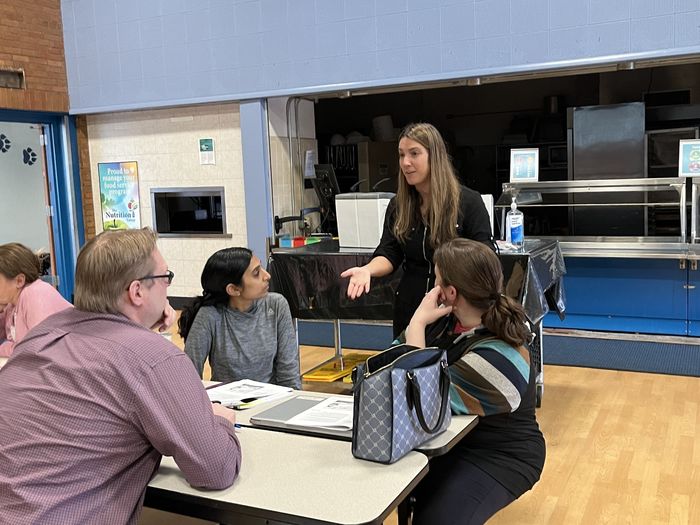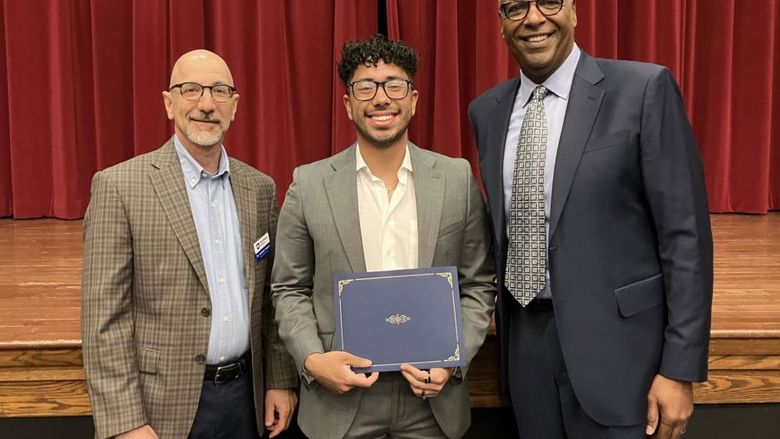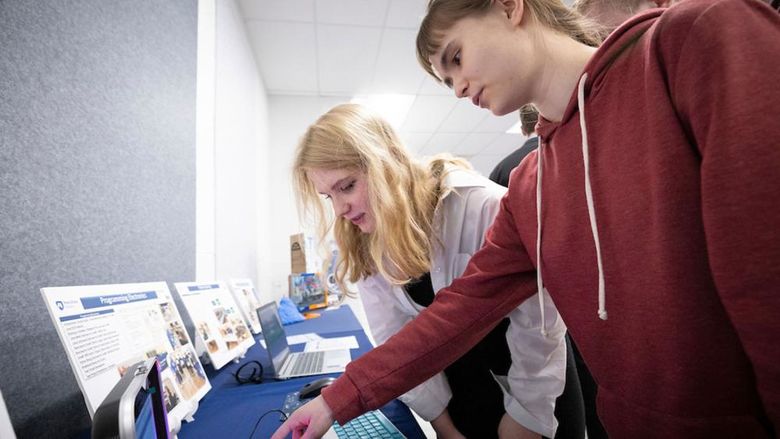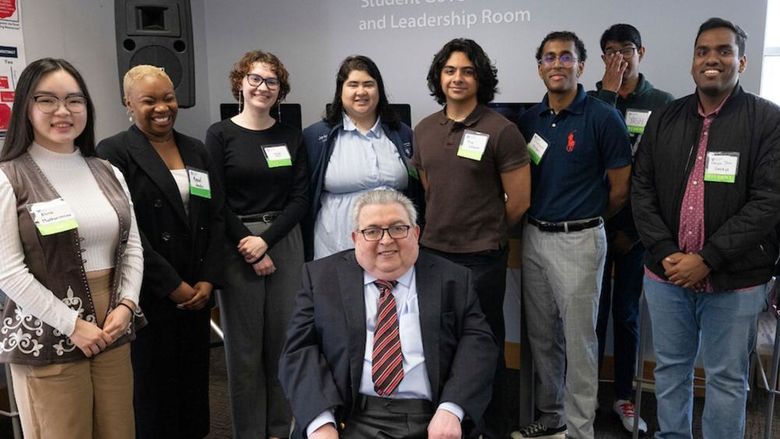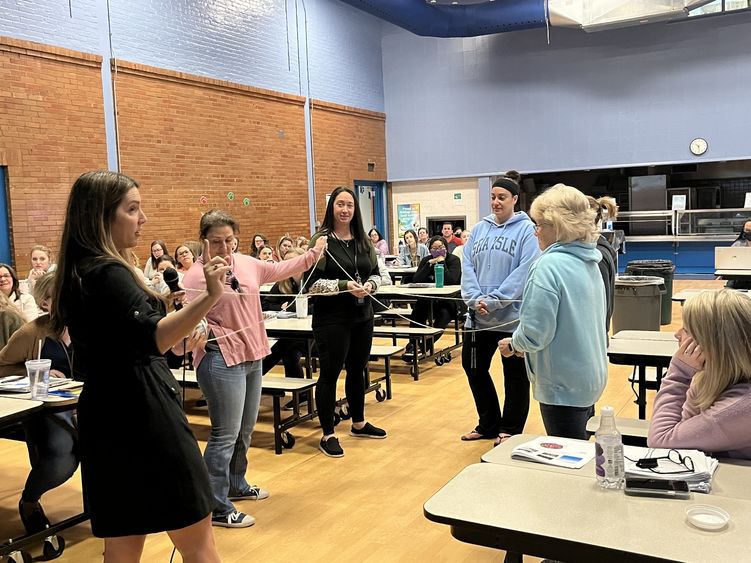
An exercise during a Penn State Abington Continuing Education workshop on teaching children with trauma is led by Gina Hernandez (left), executive director of ChildWIN and a licensed professional counselor.
ABINGTON, Pa. — As kindergarten through 12th graders resume classes nationwide, teachers often find learning waylaid by the impact of trauma. Students may act out, exhibit poor self-control, and fight, undermining positive learning outcomes and social development for all. Teachers’ accounts are supported by federal government research, which found that more than two-thirds of children and teens experience at least one traumatic event by age 16. These staggering statistics coupled with Penn State’s land-grant mission led the Penn State Abington Office of Continuing Education to collaborate with ChildWIN (Child Wellness Institute) to develop workshops focused on trauma-informed practices for educators.
An in-service day for teachers at the School Lane Charter School in Bucks County featured the foundations workshop led by Gina Hernandez, executive director of ChildWIN and a licensed professional counselor, who talked about these statistics, and more.
“Kids get labeled as troubled, but their behavior is a symptom of what’s going on in their lives. You need to understand what causes the behavior,” Hernandez told the teachers and administrators.
She shared the science behind the physiological changes that trauma inflicts on brain development including adverse childhood experiences (abuse, mental illness, substance misuse) and adverse community environments (the pandemic, poverty, discrimination) and their effects on the human brain, facts that were new to many in the room.
“The things that happen in childhood stay with you for the rest of your life. It changes your brain, your relationships, how you see the world, and it changes the framework of how you interact with people,” Hernandez said.
Positive experiences hold power over the brain and the same concept holds true for negative experiences, said Hernandez. Since the brain is not done developing until age 25, every positive interaction is an intervention to the child’s brain. In addition, brains that experience high levels of toxic stress are smaller.
“When we see a child go offline, we go right into rational thinking try to solve the problem. But they are stuck and not rational. People with trauma get there faster and stay there longer, and with kids it’s worse because their brains are not fully developed. We need to learn how to regulate students, or no learning will occur,” Hernandez said.
Many of the teachers agreed, with one noting that students learn when they feel safe and supported by the adults around them.
“At the beginning of year, it’s important to let kids know this is a safe space, and they can make mistakes because that’s how you grow and learn. We are still learning as adults. There’s no age limit to healing and learning,” one teacher said.
Hernandez offered suggestions to implement trauma-sensitive practices, focusing on building relationships and connections with students such as creating a school culture that supports healing environments, incorporating awareness activities (films and other resources), and ongoing skill building for the entire school community.
Teachers said they appreciated the practical tips Hernandez provided on implementing trauma-sensitive practices.
“Ask, how can I help? What do you need? What can we do together to make this better?" Hernandez said. "Stay calm, see the need behind the behavior, and then meet the need. It takes a calm brain to calm a brain."
The trauma-informed practices for educators workshops are designed to support teachers, schools, and youth-serving organizations in creating trauma-sensitive and healing environments, part of Penn State’s land-grant mission to support the citizens of Pennsylvania.
There are four modules that can be provided individually or as a series: the foundations course, trauma and self-care, trauma and resilience, and trauma and advanced strategies. Participants who are Pennsylvania Certified teachers are eligible to earn (2) or (7) Act 48 (PDE) hours. Contact Christine Cicio, director of Continuing Education, at [email protected] for more information.
About Penn State Abington
Penn State Abington provides an affordable, accessible and high-impact education to its diverse student body. It is committed to student success through innovative approaches to 21st-century public higher education within a world-class research university. With more than 3,100 students, Penn State Abington is a residential campus that offers bachelor’s degrees in 25 majors, undergraduate research, the Schreyer Honors College, NCAA Division III athletics and more.
